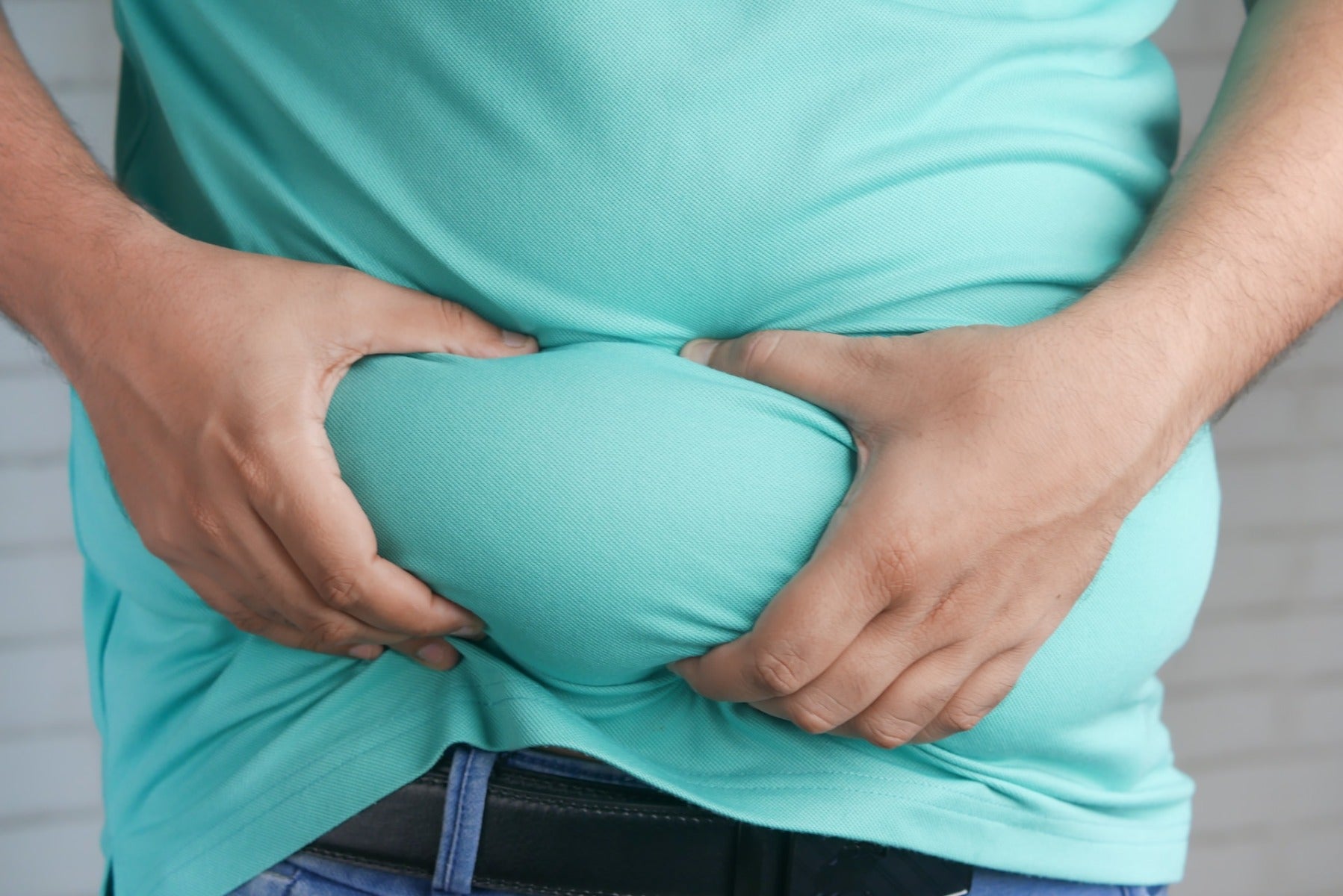In this article, we'll explore how factors such as hormones, inflammation, and nutritional deficiencies play a role in obesity-related hair loss and what you can do to mitigate its effects. Don't worry we've got you covered with strategies for combating hair loss related to obesity.
→ Take the time to read our different articles:
-https://www.haircubed.com/argan-oil-hair-health-growth
-https://www.haircubed.com/hair-loss-aging
-https://www.haircubed.com/hair-growth-shampoos
-https://www.haircubed.com/hair-growth-pills
-https://www.haircubed.com/hair-loss-hormones
-https://www.haircubed.com/hair-growth-serums
-https://www.haircubed.com/hair-loss-sleep
-https://www.haircubed.com/hair-growth-oils
The Prevalence of Obesity and Hair Loss

You're not alone in facing the double whammy of obesity and hair loss, as these two conditions often go hand in hand, impacting numerous lives across the globe.
Obesity has become a major public health issue, affecting around 13% of the world's adult population. Similarly, hair loss affects millions of people worldwide, with male pattern baldness being the most common form. However, it's important to note that both men and women can experience hair thinning or loss due to various factors.
The connection between obesity and hair loss lies in several factors such as hormonal imbalances, inflammation, and poor nutrition. When your body is dealing with excess weight or an unhealthy lifestyle, it may struggle to maintain proper hormone levels and overall health. This can lead to hair follicle damage or even hinder new hair growth.
Additionally, obesity-related inflammation can also weaken your hair follicles and make them more susceptible to falling out. So if you're struggling with both obesity and hair loss, understanding this connection might help you take steps towards improving your overall well-being and potentially regaining some lost locks along the way.
The Role of Hormones in Hair Health
Feeling frustrated with your thinning hair? It might be worth considering the role hormones play in hair health. Hormones, such as androgens and insulin, can have a significant impact on the growth and maintenance of your hair.
Changes in hormone levels can lead to various forms of hair loss or thinning, including male-pattern baldness and female-pattern hair loss. Obesity often leads to hormonal imbalances that can affect your hair's health.
For instance, excess fat tissue can lead to increased production of estrogen, which may contribute to hair loss. Additionally, obesity is linked to insulin resistance, meaning it becomes harder for your body to process sugar properly, which can also negatively impact your overall hormonal balance.
As a result, maintaining a healthy weight through diet and exercise could assist in balancing hormone levels and promoting healthier hair growth.
Inflammation and Its Effects on Hair Growth
Did you realize that inflammation can also play a significant role in impacting your hair growth? When your body is dealing with obesity, it's more likely to experience chronic inflammation. This inflammation negatively affects various aspects of your health, including the hair growth cycle.
Inflammation can damage hair follicles, leading to weaker and thinner hair over time. Additionally, increased levels of inflammatory markers have been linked to conditions such as alopecia areata and telogen effluvium both common types of hair loss.
To tackle this issue, it's important to address the root cause by adopting healthier habits and reducing obesity-related inflammation in your body. Incorporating anti-inflammatory foods into your diet (like omega-3-rich fish or green leafy vegetables), practicing regular exercise, and managing stress effectively can all contribute towards lowering inflammation levels in the body.
By doing so, you'll not only promote better overall health but also create an ideal environment for healthy hair growth.
Nutritional Deficiencies and Hair Loss
It's essential to understand how nutritional deficiencies can significantly impact your hair health and contribute to hair loss. Your body requires a variety of nutrients, including vitamins, minerals, and proteins, to maintain healthy hair growth. When you don't consume enough of these essential nutrients or have trouble absorbing them due to an unhealthy diet or underlying health issues, it can lead to weakened hair follicles and eventually hair loss.
Some common nutritional deficiencies that may affect your hair include low levels of iron, zinc, biotin, vitamin D, and proteins.
To prevent hair loss related to nutritional deficiencies, it's crucial to maintain a well-balanced diet that provides all the necessary nutrients for healthy hair growth. Incorporating foods rich in iron (such as spinach), zinc (found in pumpkin seeds), biotin (present in eggs), vitamin D (from fatty fish like salmon), and proteins (like lean meats) into your daily meals will help ensure your body gets what it needs for strong locks.
Additionally, consider consulting with a healthcare professional before taking any supplements or making significant changes to your diet so that they can guide you on the best approach tailored specifically for you.
The Impact of Weight Loss on Hair Regrowth
You might not realize it, but shedding pounds can play a role in promoting hair regrowth! When you lose weight, especially through a healthy and balanced approach, you're also addressing some of the possible underlying causes of hair loss.
For instance, by reducing body fat and improving overall health, you may experience reduced inflammation and enhanced circulation, which in turn can foster a healthier environment for hair growth.
Moreover, as you lose weight and adopt better eating habits, your nutrient intake is likely to improve - this means that your hair follicles will receive all the vitamins and minerals they need to grow strong and healthy.
However, it's important to note that rapid or extreme weight loss can sometimes have the opposite effect on your hair. Crash diets or drastic caloric restriction can lead to nutritional deficiencies or increased stress on the body - factors that might contribute to temporary hair loss known as telogen effluvium.
To avoid this scenario while pursuing your weight-loss goals, make sure you follow a well-balanced diet rich in essential nutrients like proteins, iron, zinc, biotin, and vitamin D. Additionally, consider working with a healthcare professional or nutritionist who can help guide you toward safe and sustainable weight management strategies that promote both optimal health and luscious locks!
Strategies for Combating Obesity-Related Hair Loss
Tackling obesity-related hair loss may seem challenging, but by adopting a holistic approach to your health and wellness, you'll be well on your way to achieving a healthier body and thicker mane.
Start by focusing on maintaining a balanced diet rich in essential nutrients that promote hair growth, like protein, iron, zinc, and vitamins A, C, D, and E. Incorporate lean meat sources such as chicken or fish, along with plant-based proteins like beans and lentils into your meals. Fruits and vegetables high in antioxidants can also help combat inflammation that may contribute to hair loss.
In addition to making dietary changes for overall health improvement, it's important to engage in regular physical activity.
Exercise not only aids weight loss efforts but also improves blood circulation which promotes better nutrient delivery to the hair follicles. It's also crucial to manage stress levels since chronic stress can exacerbate both obesity and hair loss issues.
Incorporating relaxation techniques such as deep breathing exercises or practicing mindfulness meditation will help balance out hormones and improve overall well-being leading you towards a healthier body with fuller locks!
Do You Know HairCubed Hair Thickener Spray?
HairCubed Hair Thickener Spray contains remarkable microfibers that offer an instant remedy for baldness and thinning hair in both men and women. Its non-toxic composition consists of natural and organic ingredients, ensuring a safe solution for hair issues. These magical fibers possess a static electric charge, allowing them to cling to existing hair strands seamlessly. Consequently, they blend so naturally that it is impossible to notice any difference between your natural hair and the lush, full appearance created by the spray.
Conclusion
In conclusion, understanding the link between obesity and hair loss is crucial for addressing both issues simultaneously. By maintaining a healthy weight, incorporating a balanced diet, engaging in regular exercise, and reducing stress, you can support your overall well-being and promote healthier hair growth. HairCubed Hair Thickener Spray provides a temporary solution to boost your hair's appearance safely and naturally. Take control of your health and feel confident in your journey towards a healthier body and luscious locks. Don't forget that it's never too late to make positive changes in your life - start taking steps towards a healthier and happier you today.
Try it now → https://www.haircubed.com/hair-cubed-micro-hair-fibers-waterproof.html


